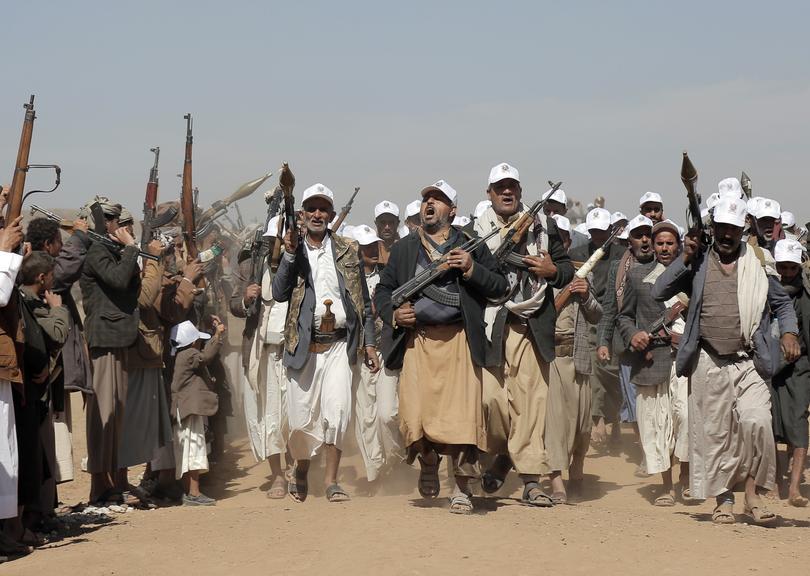US and UK forces launch intensive new strikes on eight Houthi targets in Yemen as fears of wider war grows
The combined US and UK strikes mark the biggest round of allied assaults on the Iran-backed militants since the allies began hitting the Houthis 10 days ago.

The US and UK launched new airstrikes against eight Houthi targets in Yemen on Monday, the latest salvo in an allied bid to stop the group from harassing commercial shipping in the Red Sea.
Monday night’s strikes, which marked the eighth round of allied attacks in 12 days, targeted an underground storage site and locations linked to the Houthis’ “missile and air surveillance capabilities,” the two countries said in a statement along with partners Australia, Bahrain, Canada, and the Netherlands.
“These precision strikes are intended to disrupt and degrade the capabilities that the Houthis use to threaten global trade and the lives of innocent mariners,” the statement said.
Sign up to The Nightly's newsletters.
Get the first look at the digital newspaper, curated daily stories and breaking headlines delivered to your inbox.
By continuing you agree to our Terms and Privacy Policy.British Defence Minister Grant Shapps said in a statement that the strikes were carried out in self-defence.
“This action will deal another blow to their limited stockpiles and ability to threaten global trade,” Mr Shapps said.
The airstrikes were the most significant in a series of attacks since the first wave of missile and Tomahawk launches by the US and the UK in the early hours of January 12 against the Houthis, which have caused chaos for shippers worldwide and disrupted traffic through a waterway that previously accounted for 12 per cent of global trade.
In the days since, the group, which receives financial backing from Iran, has vowed to step up its strikes.

The Houthi attacks - launched to protest Israel’s bombardment of the Gaza Strip - and the allied response have provoked fears that the US will only become further embroiled in a conflict in the Middle East and provoke a wider regional war.
Earlier Monday, the US said two Navy Seals who went missing during a mission on January 11 to seize Iranian weapons bound for the Houthis are now presumed dead, marking the first publicly known US military casualties linked to the conflict.
The two SEALs were part of a team that boarded a dhow near the coast of Somalia. The US forces sunk the boat after they seized components for ballistic and cruise missiles.
Last week, President Joe Biden acknowledged that the strikes so far hadn’t had the intended effect. “Are they stopping the Houthis? No. Are they going to continue? Yes,” Biden told reporters. On Sunday, Deputy National Security Advisor Jon Finer said military actions to deter the Houthis and other groups backed by Iran would take time.
“Deterrence is not a light switch,” Finer told ABC’s “This Week.” “We are taking out these stockpiles so they will not be able to conduct so many attacks over time. That will take time to play out.”
Tensions in the Middle East have steadily escalated since Hamas’s October 7 assault on southern Israel that killed about 1,200 people and Israel’s counterstrikes, which have killed more than 25,000 people in the Gaza Strip, according to the Hamas-run health ministry.
